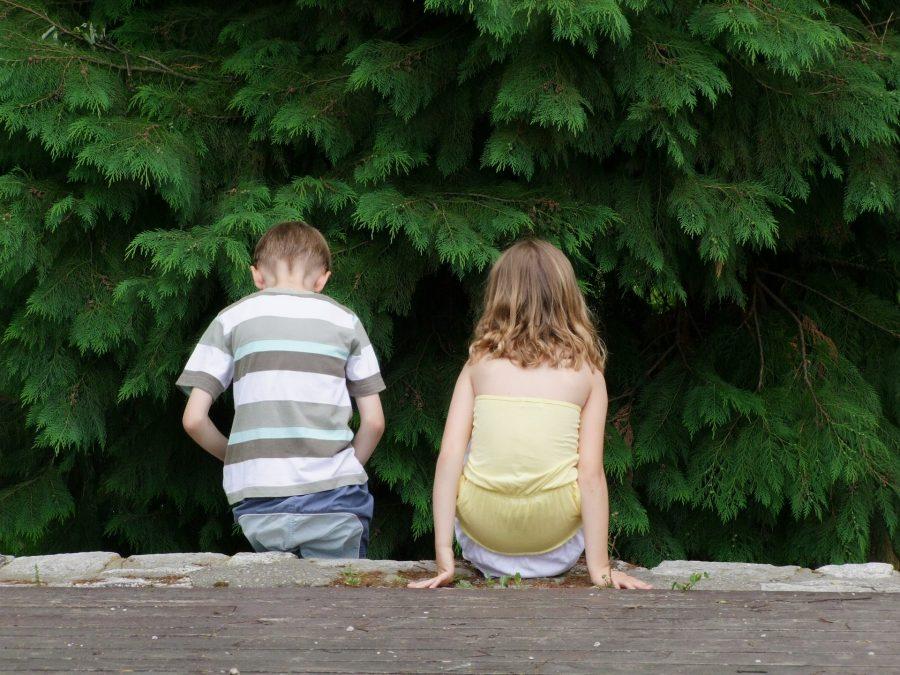A few classes into the AP Psychology course, Mr. Ives took just a minute or two to introduce to us the simple yet puzzling concept of Situationism. Situationism attributes one’s behavior purely to external influences and factors rather than to innate traits, and stands opposite of the trait theory in the person versus situation debate–the controversy over whether a person or the situation is more influential in a person’s behavior.
For me, it was a weird and slightly scary view on our personalities. According to Situationism, we didn’t really have personalities. Any and every characteristic of ours is simply derived from some external influence. It’s like saying we aren’t really us–we’re just made up of bits of other people and our environment.
That had me wondering: if Situationism really applied to all of us in this extreme manner, then wouldn’t siblings supposedly end up becoming practically the same person? After all, family is often cited as one’s greatest influence. It wouldn’t be surprising if siblings developed the same view on academics, sports, religion, and, you know, healthcare and abortion or whatever.
But that would just be absurd. After all, we all know that siblings are different people… right?
Well, to be fair, I’m sure everyone knows that. But that doesn’t stop us from comparing siblings over and over. “She’s smart, but her older brother was smarter.” “Oh, he’s the smart one. The other one is the athletic one.” Day by day, siblings face irritating statements that either label them individually or make one out to be superior to the other.
Even in trivial matters, like losing your temper or not cleaning your room, having a sibling often means you’ll be compared. “Why can’t you clean your room like your sister does?” “Your brother doesn’t lose his temper like that.” When these comparisons are made, not only do people often miss the point of the issue at hand (maybe the kid lost his temper because he did poorly on a history test he studied really hard for), but they also end up depersonalizing both children.
People, and parents in particular, tend to forget that siblings don’t always do the same thing in the same way. And that they don’t always do the same thing. One sibling can play sports while another joins the debate team. Neither one is better than the other. They’re just different.
If you raise your children under this sort of competitive attention, you’re inevitably fostering either subtle or blatant sibling rivalry. Instead of supporting their siblings, kids start hoping for them to underachieve in some misguided attempt to be the “better sibling”. And, honestly, in some situations, who but your sibling can support and understand you the best? It’s a shame that these unwarranted, everyday comparisons break down such valuable relationships.
The solution is simple, really. People, not just parents, simply need to be aware that, despite the same upbringing, siblings are different people who have different interests and traits and desires. Or perhaps they do share the same interests and desires. But this still is no reason to determine someone’s worth based on how much better or worse they are than their siblings. We can recognize Situationism as a factor in who people are today, as siblings undeniably influence one another and share similarities, but either way, nothing justifies comparing them to one another.
“When my parents stopped comparing me to my brother and realized that we both had our own strengths, I felt relieved,” a friend of mine told me recently. “Even if I didn’t see myself as a competitor to my brother before, it’s nice to know that everything I do would no longer be compared to what he does–it makes me enjoy what I do much more.”
The Situation with Siblings
December 7, 2014
0
More to Discover


![A collection of college flags. [PHOTO COURTESY OF AMBER HU ('27)]](https://blueandgoldonline.org/wp-content/uploads/2025/05/IMG_5029-1200x577.jpeg)

![An SAT word cloud. [PHOTO COURTESY OF WORDCLOUDS]](https://blueandgoldonline.org/wp-content/uploads/2025/05/SAT.jpeg)
![Collage of banned books, including “The Handmaid’s Tale” by Margaret Atwood. [MINSUN KIM/ THE BLUE & GOLD]](https://blueandgoldonline.org/wp-content/uploads/2025/04/IMG_4274-1200x681.jpeg)

![A collage of dark romance book covers from an online store for dark romance novels. [PHOTO COURTESY OF TRILOGYOFROMANCE.COM.AU]](https://blueandgoldonline.org/wp-content/uploads/2025/04/IMG_4272-1200x600.png)